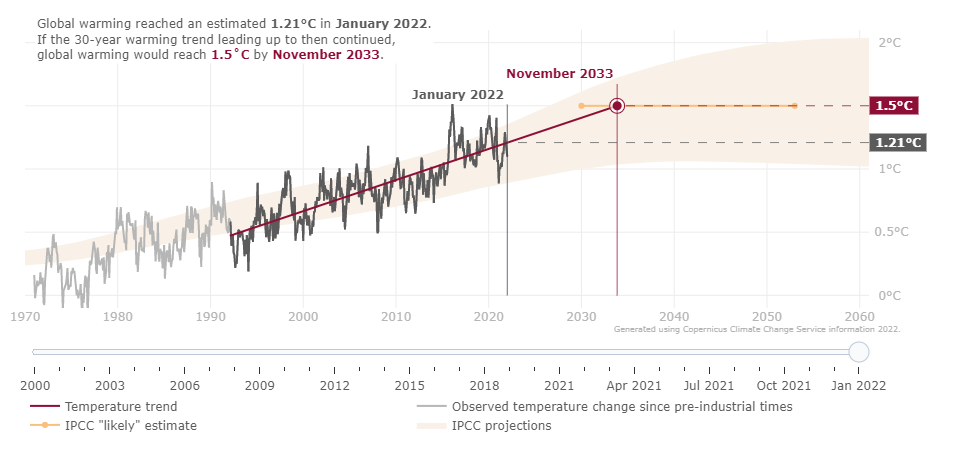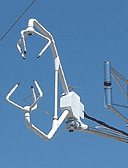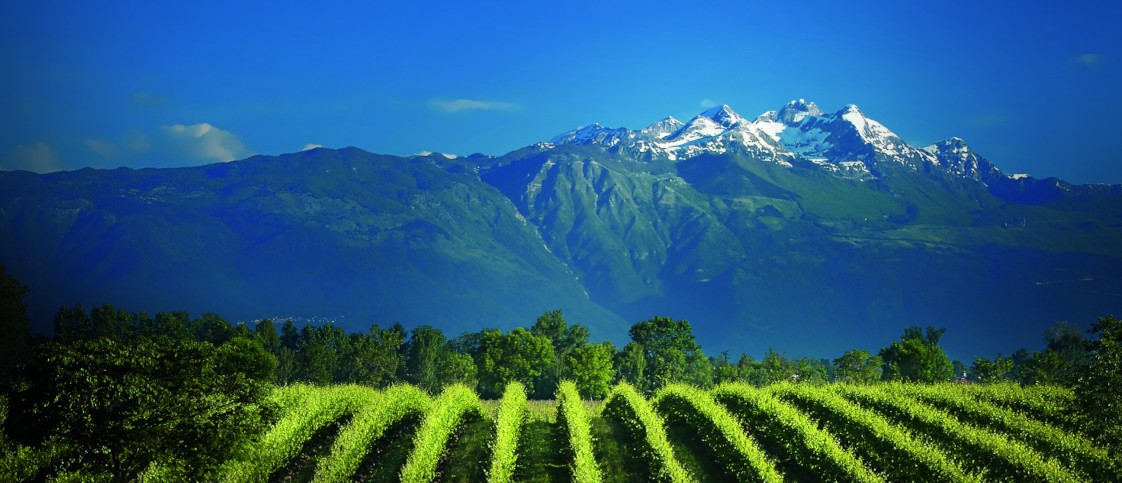Profilo personale: Pitacco Andrea
Pitacco Andrea
| Nazione: | Italia |
|---|---|
| Città /Località: | Venezia |
| Skype ID: | andrea.pitacco |
Corsi

The course will deal with the role of vegetation on fundamental environmental processes (energy and water balance), focusing also on carbon fluxes. The interaction between plants and atmosphere will be especially clarified in its physical aspects, in relation to the shift of climate. The course also aims at introducing to environmental measurements, discussing sensors and datalogging equipment to monitor energy, water, and CO2 fluxes on plant canopies.
Lectures will be given in English, to train all of us to the proper scale, which is really global and international. Full proficiency in the language is not requested, and all the students of STAmT programme are welcome.
Lectures will be given in English, to train all of us to the proper scale, which is really global and international. Full proficiency in the language is not requested, and all the students of STAmT programme are welcome.
- Docente: Pitacco Andrea
Corso di Laurea Magistrale in Scienze e Tecnologie per l'Ambiente e il Territorio
Insegnamento di "Vegetation-Atmosphere Interactions" (in lingua inglese)
Insegnamento di "Vegetation-Atmosphere Interactions" (in lingua inglese)
- Docente: Pitacco Andrea
Il Corso ha l'obiettivo di introdurre allo studio della Viticoltura, partendo da una solida base della biologia e della fisiologia della Vite e delle sue relazioni con l'ambiente. Vengono fornite informazioni sulle moderne tecniche di coltivazione, con l'obiettivo di garantire una concreta prospettiva di sostenibilità ambientale della coltura, solidamente agganciata alla lunga e ricca tradizione del suo sviluppo in Italia.
- Docente: Meggio Franco
- Docente: Pitacco Andrea

The course - given in English - aims at introducing to the study of the fascinating and crucially important field of the interactions between terrestrial vegetation and atmosphere or, in a broader sense, between Biosphere and Geosphere. We will examine the major physical factors and processes determining plant life, looking also at the role of vegetation in shaping the local and global environment, underlying the tight relationships between Physics and Life.
The course will give a clear picture of key natural transport processes, focusing on energy and mass (water, carbon...) fluxes. The role of vegetation on global budgets will be clarified, as well as the interactions with climate change.
A strong attention will be given on practical approaches for practical measurement of key environmental variables and processes, transferring to the attendants the technical skill required for deploying and managing advanced monitoring networks.
The course will give a clear picture of key natural transport processes, focusing on energy and mass (water, carbon...) fluxes. The role of vegetation on global budgets will be clarified, as well as the interactions with climate change.
A strong attention will be given on practical approaches for practical measurement of key environmental variables and processes, transferring to the attendants the technical skill required for deploying and managing advanced monitoring networks.
- Docente: Pitacco Andrea

The new course "New Challenges in Viticulture" aims at discussing and clarifying the new, unprecedented forcings which are acting on the vineyard, to understand and forecast possible grapevine responses and design and shape strategies to cope with climate change.
Lectures will be given in English, to train all of us to the proper scale, which is really global and international. Full proficiency in the language is not requested, and all the students of STVE programme are welcome.
Lectures will be given in English, to train all of us to the proper scale, which is really global and international. Full proficiency in the language is not requested, and all the students of STVE programme are welcome.
- Docente: Pitacco Andrea

The course will deal with the role of vegetation on fundamental environmental processes (energy and water balance), focusing also on carbon fluxes. The interaction between plants and atmosphere will be especially clarified in its physical aspects, in relation to the shift of climate. The course also aims at introducing to environmental measurements, discussing sensors and datalogging equipment to monitor energy, water, and CO2 fluxes on plant canopies.
Lectures will be given in English, to train all of us to the proper scale, which is really global and international. Full proficiency in the language is not requested, and all the students of STAmT programme are welcome.
Lectures will be given in English, to train all of us to the proper scale, which is really global and international. Full proficiency in the language is not requested, and all the students of STAmT programme are welcome.
- Docente: Pitacco Andrea

L'obiettivo primario del Corso riguarda lo sviluppo della capacità di interpretare, pianificare ed effettuare i molteplici interventi tecnici applicati al vigneto, alla luce di una piena consapevolezza della biologia e della fisiologia della pianta e dei suoi rapporti con il terreno e l'ambiente fisico in generale.
- Docente: Meggio Franco
- Docente: Pitacco Andrea

Viticulture has a long history. We have been dealing with grapevine since Neolithic, and enjoyed its fruits. Soon we realized that grape juice may be fermented, and get a very special beverage: wine.
Wine has always had an important role for Mankind: a way to boost ordinary consciousness, that was experienced as a higher and tighter connection to Nature and God. For these special properties, wine entered key rituals in many societies. As such, wine also received a special attention also by Christian religion, which contributed to its widespread diffusion. In modern times, wine still retains a great role in socialization between people.
In a long relationship with grapevine and wine, we gradually understood the complexities of the interactions between plant and its environment, and developed techniques to best match grapevine types with different growing locations and the physical environment. We came to define varieties. We understood what quality is and what it can mean. We started commercial trading, and improved cultural exchanges.
The tight relationships between grapevine, wine and the environment, which has been always pivotal, now is endangered. We destabilized climate, that is now rapidly shifting towards unpredictable and likely unbearable conditions. Viticulture, however, among all the peculiarities it has, is also very static, and actually quite weak and slow in adapting.
The new course "New Challenges in Viticulture" aims at discussing and clarifying the new, unprecedented forcings which are acting on the vineyard, to understand and forecast possible grapevine responses and design and shape strategies to cope with climate change.
The course will be given in English, to train all of us to the proper scale, which is really global and international. Full proficiency in the language is not requested, and all the students of STVE programme are welcome.
Wine has always had an important role for Mankind: a way to boost ordinary consciousness, that was experienced as a higher and tighter connection to Nature and God. For these special properties, wine entered key rituals in many societies. As such, wine also received a special attention also by Christian religion, which contributed to its widespread diffusion. In modern times, wine still retains a great role in socialization between people.
In a long relationship with grapevine and wine, we gradually understood the complexities of the interactions between plant and its environment, and developed techniques to best match grapevine types with different growing locations and the physical environment. We came to define varieties. We understood what quality is and what it can mean. We started commercial trading, and improved cultural exchanges.
The tight relationships between grapevine, wine and the environment, which has been always pivotal, now is endangered. We destabilized climate, that is now rapidly shifting towards unpredictable and likely unbearable conditions. Viticulture, however, among all the peculiarities it has, is also very static, and actually quite weak and slow in adapting.
The new course "New Challenges in Viticulture" aims at discussing and clarifying the new, unprecedented forcings which are acting on the vineyard, to understand and forecast possible grapevine responses and design and shape strategies to cope with climate change.
The course will be given in English, to train all of us to the proper scale, which is really global and international. Full proficiency in the language is not requested, and all the students of STVE programme are welcome.
- Docente: Pitacco Andrea

The course will deal with the role of vegetation on fundamental environmental processes (energy and water balance), focusing also on carbon fluxes. The interaction between plants and atmosphere will be especially clarified in its physical aspects, in relation to the shift of climate. The course also aims at introducing to environmental measurements, discussing sensors and datalogging equipment to monitor energy, water, and CO2 fluxes on plant canopies.
Lectures will be given in English, to train all of us to the proper scale, which is really global and international. Full proficiency in the language is not requested, and all the students of STAmT programme are welcome.
Lectures will be given in English, to train all of us to the proper scale, which is really global and international. Full proficiency in the language is not requested, and all the students of STAmT programme are welcome.
- Docente: Pitacco Andrea
